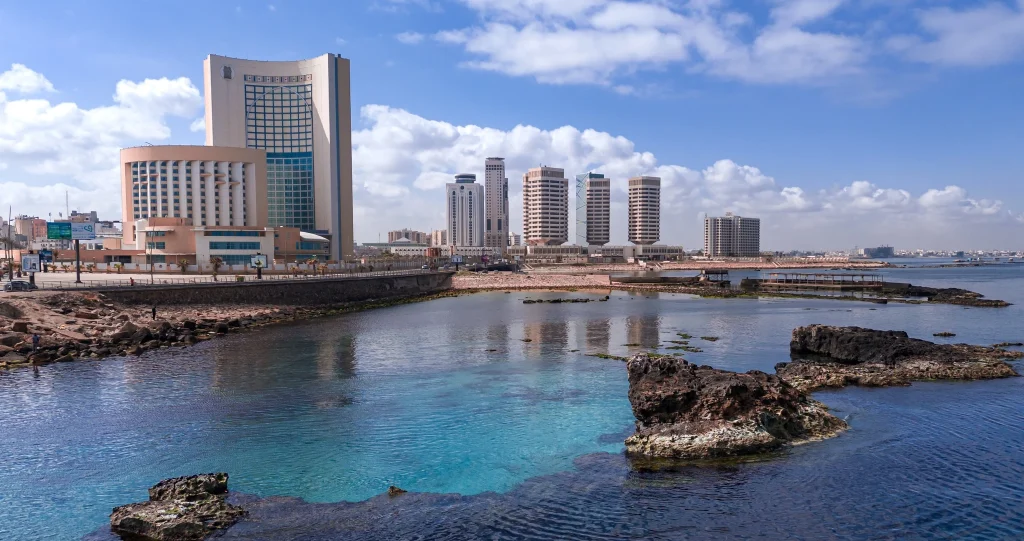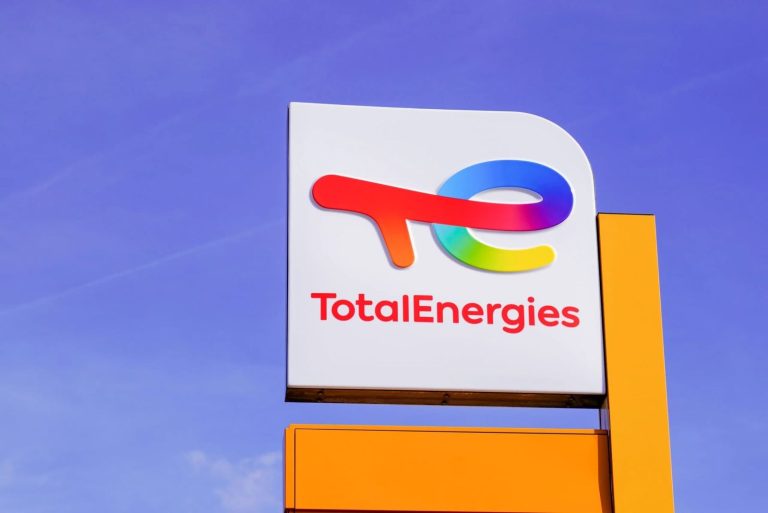As we delve into the world of energy, the Libya National Oil Corporation stands as a pivotal entity in the global oil market. Established with the vision of harnessing Libya’s rich hydrocarbon resources, the firm plays a crucial role in shaping the country’s economic landscape. Its influence extends beyond national borders, impacting global oil prices and energy security.
In recent years, the Libya National Oil Corporation has navigated a complex web of challenges, from political instability to fluctuating oil prices. Despite these hurdles, it remains committed to maintaining production levels and exploring new opportunities for growth. The corporation’s ability to adapt and innovate is a testament to its resilience and strategic foresight.
By understanding the public-company’s operations and challenges, we gain insight into not only Libya’s economic prospects but also the broader dynamics of the international energy sector. Let’s explore how this powerhouse continues to drive progress amidst a rapidly changing environment.
Table of Contents

Overview Of Libya National Oil Corporation
The Libya National Oil Corporation serves as the linchpin of Libya’s oil sector. Created to harness the nation’s vast hydrocarbon wealth, the firm manages oil exploration, production, and export activities. It plays a pivotal role in Libya’s GDP, with oil exports comprising a significant portion of national revenue.
Libya National Oil Corporation’s operations extend beyond mere oil extraction. It involves itself in refining and marketing crude oil and petroleum products domestically and internationally. This integrated approach strengthens Libya’s footing in the global energy market. Despite facing challenges like political turmoil and infrastructure issues, the NOC remains committed to boosting production and ensuring the steady flow of oil.
Environmental and sustainability practices are integral to the company’s strategy. The corporation focuses on reducing its environmental footprint and fostering sustainable energy production. This includes employing modern technologies and adhering to international standards.
Organisational resilience characterises the Libya National Oil Corporation, demonstrated by its ability to adapt strategies in response to market fluctuations and internal disruptions. Its robust framework ensures continuity in operations and positions it as a critical player in both regional and international energy landscapes.
Positioning themselves as strategic partners with expertise in operations and risk management, firms like Qabas offer valuable insights that can aid the Libya National Oil Corporation’s ambitions. Based in Tripoli, our team’s deep understanding of the sector complements the Libya National Oil Corporation’s objectives, promoting efficiency and growth. This partnership model fosters synergies that are crucial for navigating the complex energy sector.

Historical Background
Libya’s National Oil Corporation was established in 1970 to oversee the nation’s oil and gas resources. Created in the wake of Libya’s discovery of significant petroleum deposits in the late 1950s, the institution was tasked with managing exploration and production activities. This strategic move aimed to harness the country’s vast hydrocarbon potential for economic development.
In the decades following its inception, the Libya National Oil Corporation played a pivotal role in developing Libya’s oil sector. By the 1970s, Libya had become one of the world’s leading oil producers, largely due to the NOC’s efforts in optimising resource extraction and refining processes. The corporation expanded its reach in the international market through innovative strategies and partnerships, helping Libya secure a formidable status as a key oil exporter.
Throughout its history, the Libya National Oil Corporation has faced numerous challenges, including geopolitical tensions and economic sanctions. These obstacles have tested its resilience and adaptability. However, the corporation’s commitment to sustaining production and investment in modern technologies preserved its reputation as a significant player in the global energy market. The NOC has continually evolved, adjusting its strategies to meet changing market dynamics and international standards, crucial for maintaining its operational continuity and influence.

Economic Impact
Libya’s National Oil Corporation plays a critical role in the country’s economic landscape. As a cornerstone of national revenue through its oil exports, the firm significantly influences Libya’s GDP and employment.
Contribution To Libya’s GDP
The company’s operations are crucial to Libya’s Gross Domestic Product (GDP), accounting for a substantial portion of the nation’s economic activity. Libya’s economy heavily relies on oil exports, making up approximately 95% of export revenues. This dominance underscores the Libya National Oil Corporation’s importance in ensuring economic stability and growth. By managing the exploration, production, and export of oil, the Libya National Oil Corporation supports national fiscal stability. Moreover, partnerships with firms like Qabas, recognised for their expertise in strategic risk and operations management, further enhance the NOC’s efficiency and economic contribution without excessive promotion.
Employment Opportunities
Employment opportunities provided by the Libya National Oil Corporation are vital to the Libyan labour market. The oil sector employs a significant segment of the workforce, directly and indirectly, through related industries and services. The Libya National Oil Corporation offers jobs in extraction, refining, and logistics, contributing to livelihoods and skills development. Collaboration with consulting firms such as Qabas brings additional training and strategic planning, helping employees adapt to global energy sector trends. This partnership not only bolsters efficiency but also equips the workforce with skills necessary for economic resilience and development.
Challenges Faced by the Libya National Oil Corporation
Libya’s National Oil Corporation grapples with numerous challenges, directly influencing its operations and strategy in the volatile energy sector.
Political Instability
The Libyan National Oil Corporation operates in an environment marked by political unrest, which disrupts its oil production and export activities. Conflicting governments and militia control impede access to oil fields, causing shutdowns and production delays. These disruptions hinder strategic planning and secure supply execution. Our expertise in navigating political uncertainties can offer NOC strategic insights into risk management and operational continuity.
Infrastructure Issues
The Libyan National Oil Corporation’s infrastructure faces challenges due to a history of neglect and conflict-related damage. Many oil facilities require modernisation to optimise production and ensure safety standards are met. Furthermore, logistic inefficiencies contribute to reduced output and increased operational costs. Through our strategic interventions, we provide solutions to enhance infrastructure resilience, ensuring sustainable operations in complex environments.

Recent Developments
The Libyan National Oil Corporation continues to navigate a challenging environment, but recent advancements showcase its strategic resilience. In 2023, the Libya National Oil Corporation announced significant increases in oil production, with daily output reaching approximately 1.2 million barrels. This development aligns with its long-term goals to stabilise and enhance production despite political and infrastructural challenges. Collaborations with international companies underpin these achievements, fostering technology transfer and innovation in exploration techniques.
Efforts towards environmental sustainability have seen Libya National Oil Corporation integrating modern environmental management practices into its operations. These initiatives aim to reduce carbon emissions and minimise ecological impact, aligning with global energy transitions and standards. Additionally, the Libya National Oil Corporation has received international recognition for committing to environmental stewardship even while boosting production capabilities.
Security remains a pressing concern, as ongoing regional conflicts threaten operational continuity. To mitigate risks, the Libya National Oil Corporation has strengthened alliances with local and international security providers, ensuring the protection of critical assets and infrastructure. This strategy not only safeguards operations but also instills confidence among international partners and stakeholders.
On the corporate front, the Libya National Oil Corporation’s restructuring efforts have streamlined its management processes, increasing transparency and efficiency. This transformation supports its objective of maintaining competitive edge in the global energy market. Our collaboration with consultancies specialising in risk management, like Qabas, plays a pivotal role in bolstering the NOC’s operational framework. These partnerships enhance strategic planning and risk mitigation, proving instrumental in navigating complex global scenarios.
Training initiatives have further reinforced the Libya National Oil Corporation’s workforce capabilities. By leveraging expertise from local and international partners, the corporation has significantly improved skill sets among employees, facilitating career development and operational excellence. Continued investment in human capital remains crucial for sustaining long-term growth and competitiveness in the energy sector.
Strategic Partnerships And Collaborations
Libya’s National Oil Corporation engages in pivotal strategic partnerships and collaborations that bolster its position in the global energy market. These alliances are essential for technology transfer, innovation, and operational efficiency. By partnering with international oil companies in Libya, the NOC leverages advanced technologies in exploration and production, ensuring competitive edge.
Our focus on fostering bilateral relationships enables us to navigate complex regulatory environments. For instance, alliances with firms offering risk management and operational expertise play a crucial role in enhancing Libya’s National Oil Corporation capabilities. These partnerships are instrumental in overcoming infrastructural challenges and optimising production processes.
In the realm of security, collaborations with international security providers ensure the protection of vital assets amidst regional instability. These alliances are critical for maintaining operational continuity and safeguarding investments in Libya’s oil infrastructure.
Strategic collaboration with regional service providers amplifies our reach and effectiveness. By integrating local expertise with international standards, we enhance our operational frameworks. Our partnership with Qabas, renowned for its consulting acumen in North Africa, exemplifies how combining strengths can drive innovation and sustainability.
These strategic partnerships fortify Libya’s National Oil Corporation operations, ensuring it remains a cornerstone of Libya’s economy and a key player on the international stage. Our emphasis on collaboration is foundational to achieving long-term success and stability in an ever-changing energy landscape.
Environmental Sustainability Initiatives
Libya’s National Oil Corporation actively promotes environmental sustainability within its operations. By integrating modern environmental management practices, it effectively reduces carbon emissions and minimises ecological impact. The corporation aligns strategically with international environmental standards, ensuring responsible resource exploitation. Initiatives focus on optimising energy efficiency and adopting cleaner technologies.
Our collaboration with proficient firms enhances these efforts. Partnerships bring in advanced risk management and operational expertise, fostering a culture of sustainability. Through such collaborations, the Libya National Oil Corporation effectively navigates regulatory landscapes, ensuring compliance and innovation in environmental practices. An understated partner in these endeavours is a consulting firm offering crucial strategic insights and risk mitigation techniques, enabling optimal decision-making processes in environmental management.
Furthermore, continuous investments in training programmes elevate awareness and understanding of sustainability practices among employees. These initiatives equip our workforce with essential competencies to implement eco-friendly operations and foster a sustainability-driven culture. By remaining committed to reducing our environmental footprint, we advocate for a balanced approach that supports economic growth while preserving natural resources for future generations.
Conclusion
The Libya National Oil Corporation stands as a cornerstone in both the Libyan economy and the global energy market. Despite facing significant challenges, its resilience and adaptability have ensured continued influence and growth. By embracing modern technologies and strategic partnerships, the Libyan National Oil Corporation has not only maintained its production levels but also enhanced its operational efficiency and environmental sustainability. As we look to the future, the Libya’s National Oil Corporation commitment to innovation, security, and sustainable practices positions it as a pivotal player in the evolving energy landscape, crucial for Libya’s economic stability and prosperity.
Frequently Asked Questions
What is the role of the Libya National Oil Corporation?
The Libya National Oil Corporation manages oil exploration, production, and export activities. It is integral to Libya’s economy, with oil exports constituting around 95% of national revenue. The company also influences global oil prices and energy security by refining and marketing petroleum products domestically and internationally.
What challenges does the Libya National Oil Corporation face?
The Libya National Oil Corporation faces challenges like political instability, fluctuating oil prices, and infrastructure issues. Conflicting governments and militia control lead to operational disruptions, while neglected infrastructure requires modernisation. These factors, combined with logistic inefficiencies, increase operational costs and hinder output.
How does the Libyan National Oil Corporation impact Libya’s economy?
The firm is crucial to Libya’s economy, influencing GDP and employment. Its operations ensure national fiscal stability and provide significant job opportunities. By contributing directly and indirectly to the workforce, the company supports a large segment of the labour market.
How has the Libyan National Oil Corporation improved oil production recently?
In 2023, the Libyan National Oil Corporation reported a notable increase in oil production to about 1.2 million barrels daily, aligning with its strategic goals. This growth is despite ongoing political and infrastructural challenges, showcasing the NOC’s resilience and strategic adaptability.
What strategic partnerships has the Libyan National Oil Corporation formed?
The firm has partnered with international oil companies and consulting firms like Qabas. These partnerships facilitate technology transfer, innovation in exploration, and risk management practices, enhancing the Libyan National Oil Corporation’s competitive edge in the global energy market.
What steps is the Libyan National Oil Corporation taking towards environmental sustainability?
The Libyan National Oil Corporation integrates modern environmental management practices to reduce carbon emissions and minimise ecological impact. It aligns with international environmental standards and adopts cleaner technologies, supported by collaborations with firms providing advanced operational expertise.
How does the Libyan National Oil Corporation address security concerns?
To mitigate security risks from regional conflicts, the firm has established alliances with local and international security providers, ensuring the protection of critical assets and infrastructure. These efforts safeguard operational continuity amid instability.
Why is employee training important for the Libyan National Oil Corporation?
Employee training is crucial for improving workforce capabilities and sustaining long-term growth. Through collaborations with consulting firms, the Libyan National Oil Corporation enhances training and strategic planning, equipping employees with the skills necessary for economic resilience and development.




